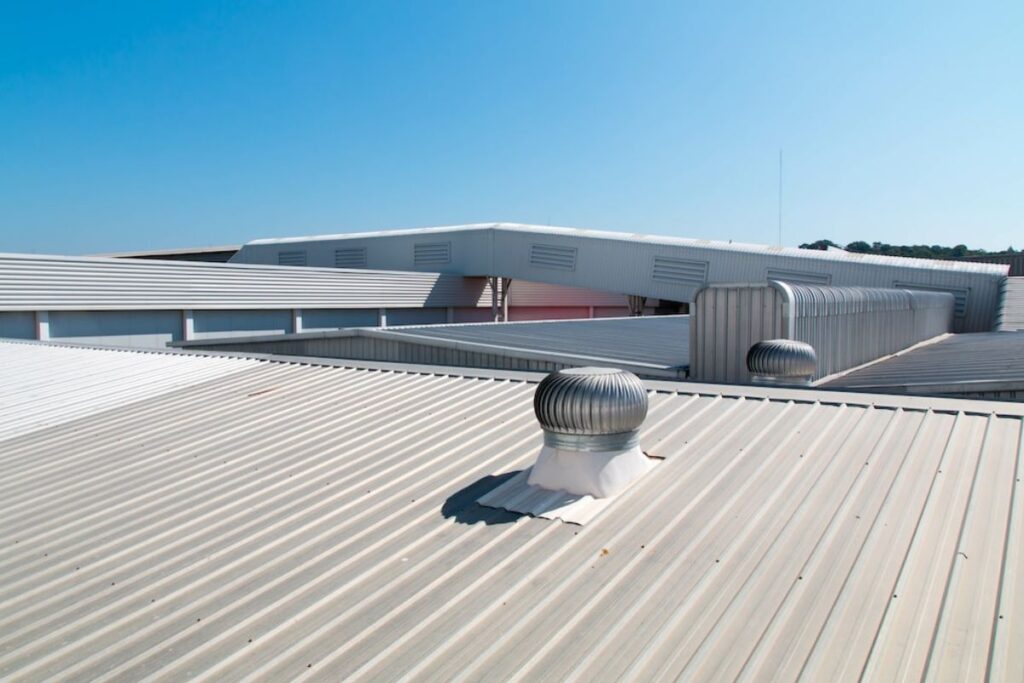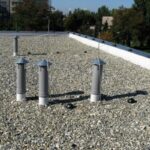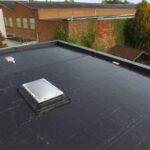Hello Friends, If you’re planning to build a commercial property from scratch or renovate your current building, choosing the right roofing material is one of the most important decisions you’ll make. While your contractor might guide you based on their experience, having prior knowledge about different types of commercial roofs can save you money and help you make a more informed decision.
In this article, we’ll explore various types of commercial roofing materials, their features, pros, cons, and costs. This guide will help you select a roofing system that suits your budget, usage, and long-term plans.
Different Types of Roofs for Commercial Properties
1. Felt Roofing (Mineral Felt)
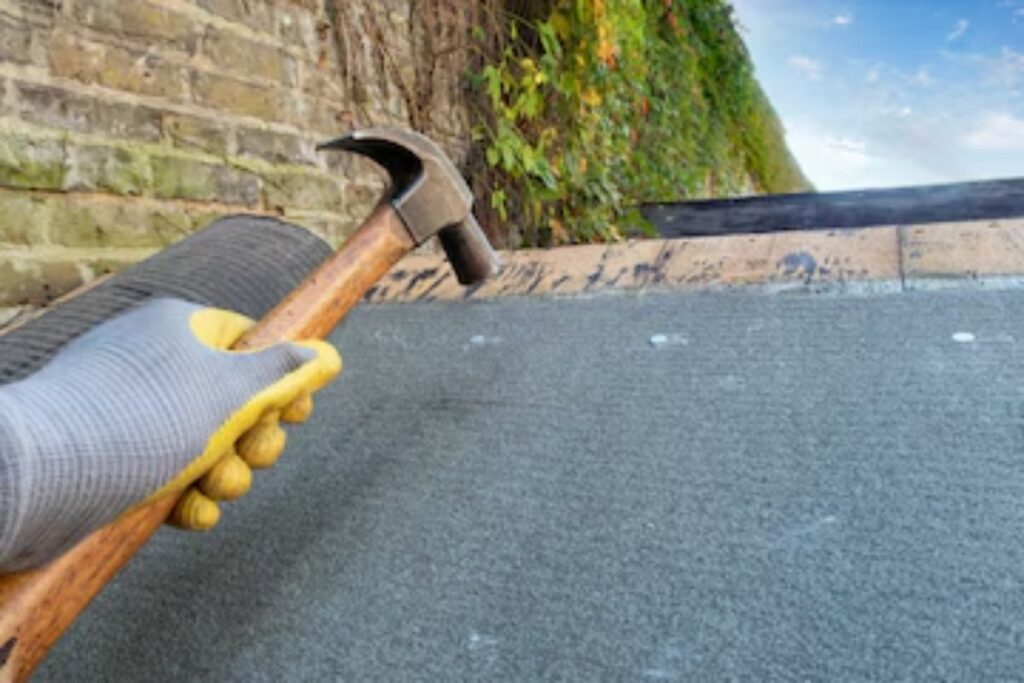
Felt roofing, also known as torch-on felt or bitumen felt, is a common material used for flat roofs. It’s affordable, easy to install, and provides decent water resistance.
| Feature | Detail |
|---|---|
| Lifespan | Around 20 years |
| Cost | Around $0.39 per sq. ft. |
| Advantages | Affordable, easy to install |
| Disadvantages | Can pool water, shortens lifespan if cracked |
This option is suitable for budget-conscious property owners looking for a temporary solution or minor projects.
2. Tar and Gravel Roofing
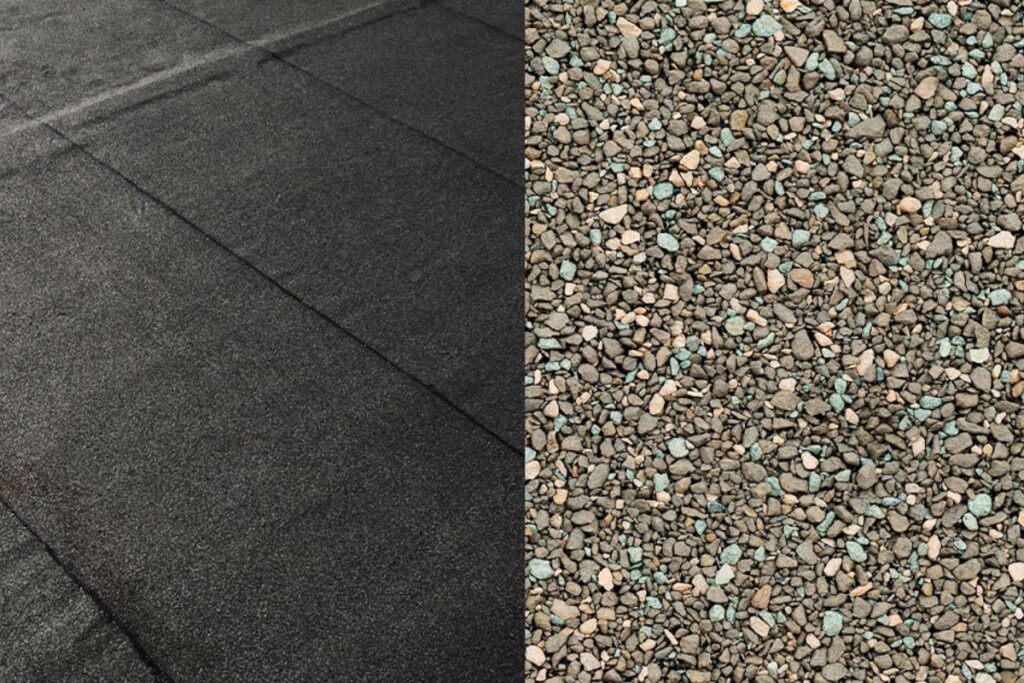
Tar and gravel roofs use multiple layers of materials with hot tar in between. The surface is finished with gravel or decorative aggregate for protection and appearance.
| Feature | Detail |
| Lifespan | 20 to 40 years |
| Cost | Around $4 per sq. ft. |
| Advantages | UV protection, fire-retardant, long lifespan |
| Disadvantages | Heavy, strong odor during installation |
This roof is perfect for those looking for long-term durability with economic value.
3. EPDM (Ethylene Propylene Diene Monomer)
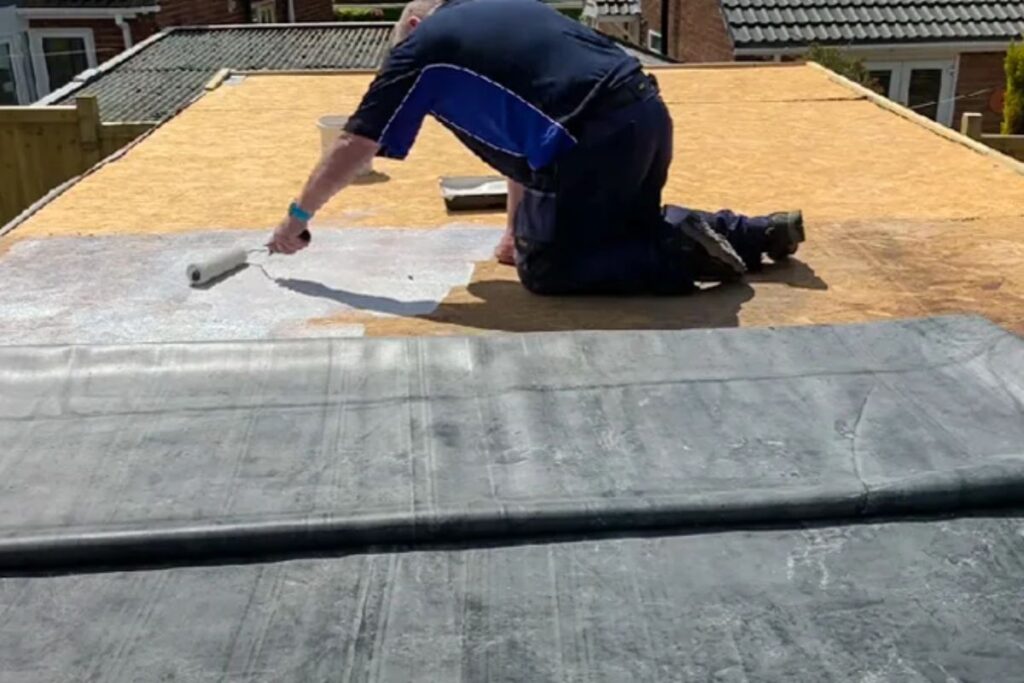
EPDM roofing is made from synthetic rubber materials. It is lightweight, easy to install, and widely recommended by contractors.
| Feature | Detail |
| Lifespan | 20 to 30 years |
| Cost | Around $0.80 per sq. ft. |
| Advantages | UV resistant, low cost, seamless installation |
| Disadvantages | Poor aesthetics, easily punctured |
Ideal for owners who want a simple, budget-friendly, and long-lasting solution for low-slope roofs.
4. TPO (Thermoplastic Olefin)
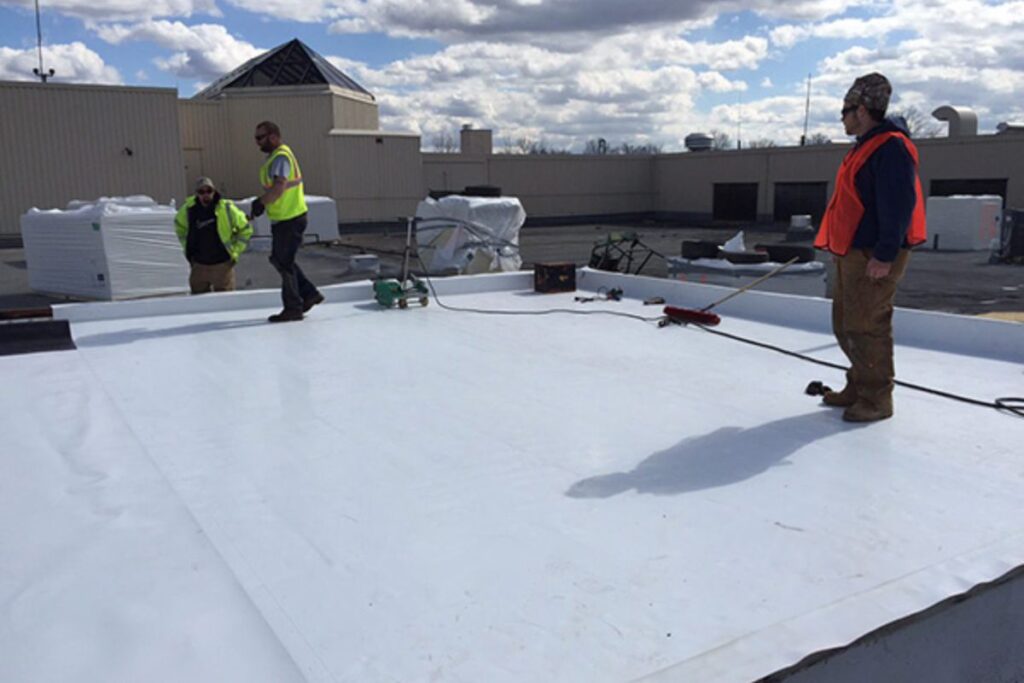
TPO roofs are made from a mix of polypropylene and ethylene-propylene rubber. They offer excellent insulation and are highly reflective.
| Feature | Detail |
| Lifespan | About 20 years |
| Cost | $5 to $6 per sq. ft. |
| Advantages | Fire-retardant, energy efficient, UV resistant |
| Disadvantages | Expensive, inconsistent quality across manufacturers |
TPO roofing is ideal for commercial buildings that prioritize energy efficiency.
5. PVC (Polyvinyl Chloride)
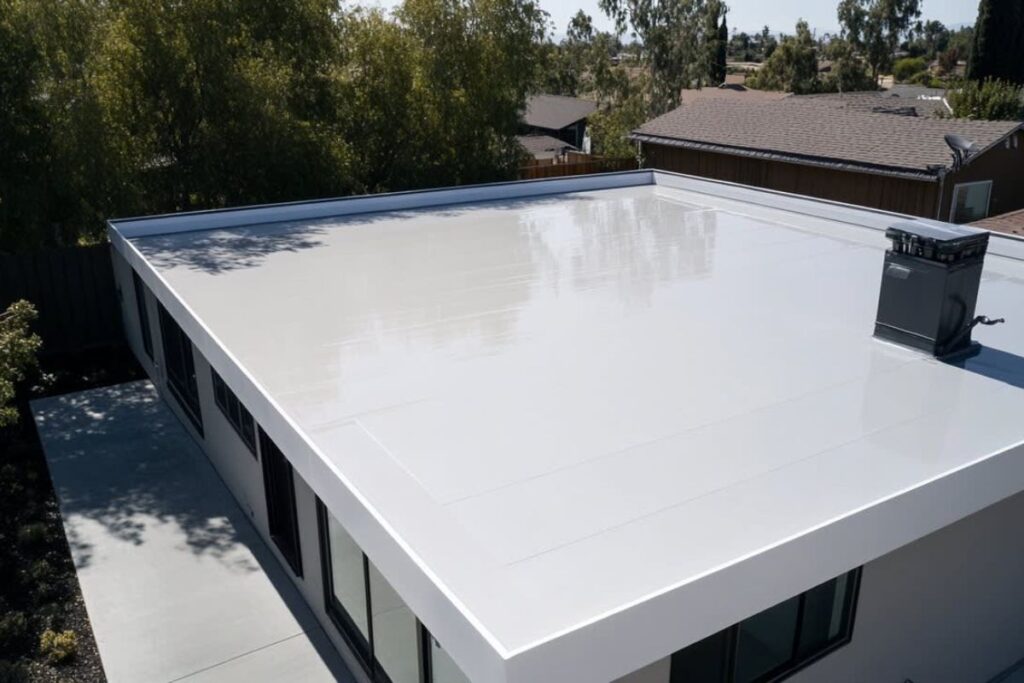
PVC roofing membranes are known for their high strength and durability. They are widely used in hotels, condominiums, and commercial buildings.
| Feature | Detail |
| Lifespan | About 20 years |
| Cost | $6 to $9.5 per sq. ft. |
| Advantages | UV resistant, chemical resistant, strong seams |
| Disadvantages | High cost, not compatible with asphalt-based materials |
PVC is a great choice for properties with high chemical exposure or those requiring premium quality roofing.
6. Metal Roofing
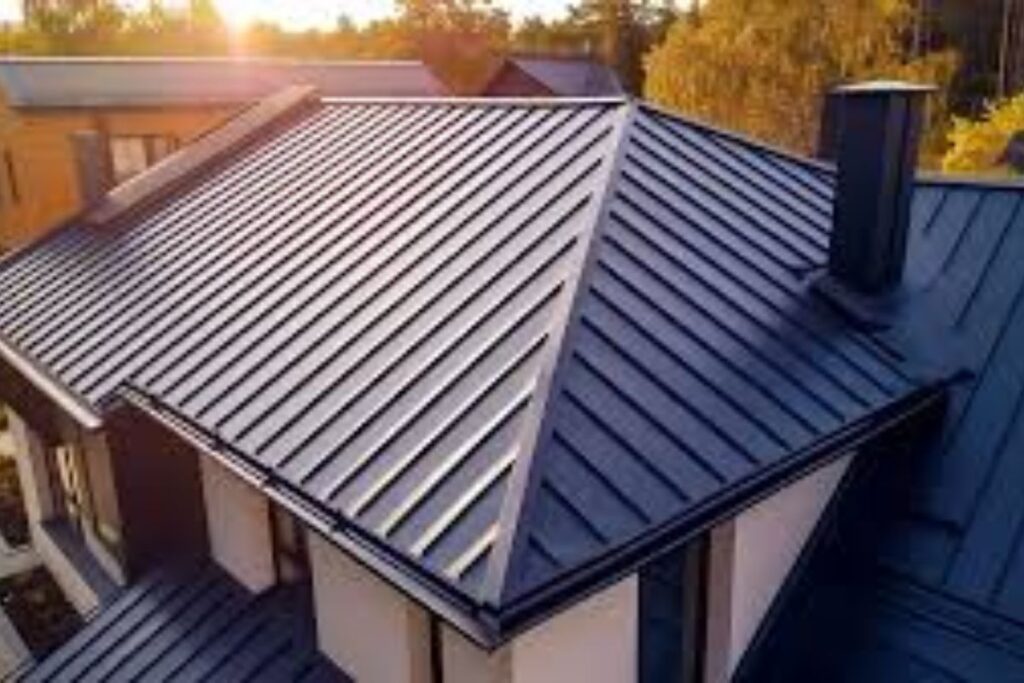
Metal roofs, typically made from steel or aluminum, are among the most durable and low-maintenance roofing options available.
| Feature | Detail |
| Lifespan | 30 to 50 years |
| Cost | $15 to $60 per sq. ft. |
| Advantages | Lightweight, fire-retardant, recyclable |
| Disadvantages | Expensive, noisy during rain, susceptible to dents |
Best for long-term investments where durability and low maintenance are top priorities.
7. Mastic Asphalt
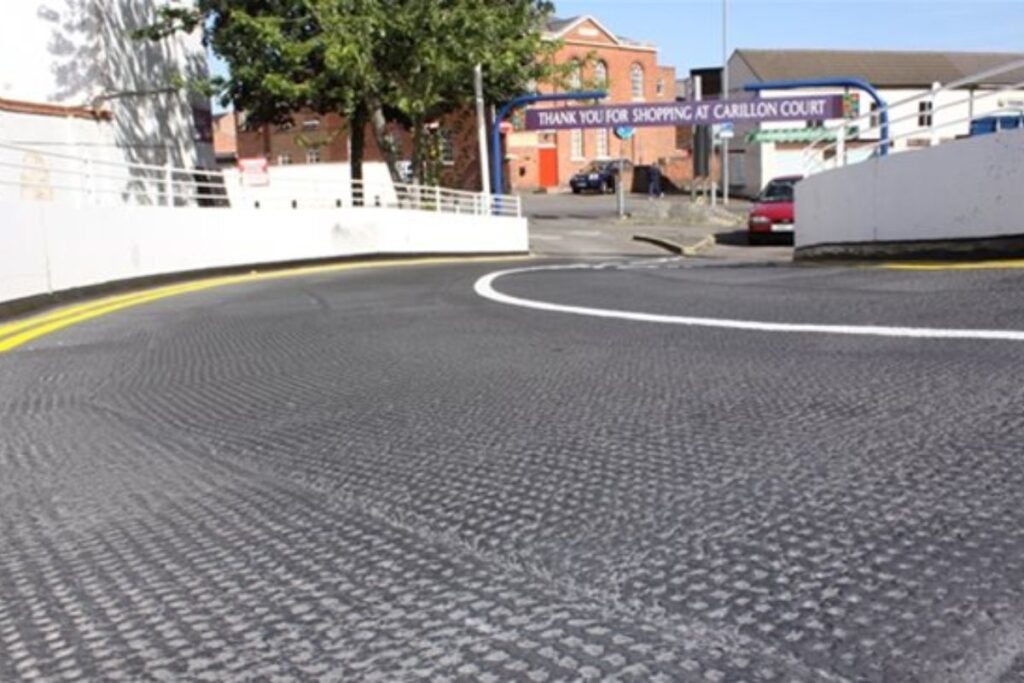
Mastic asphalt is one of the most robust roofing materials used today. It’s especially popular for structures exposed to foot traffic like hotel rooftops and parking decks.
| Feature | Detail |
| Lifespan | Up to 50 years |
| Cost | $2.50 to $4.00 per sq. ft. |
| Advantages | Recyclable, strong, supports rooftop gardens |
| Disadvantages | Heavy, frequent maintenance required |
This type of roof is excellent for heavy-duty applications and environmentally-conscious builders.
Summary Table: Comparison of Commercial Roofing Materials
| Roofing Type | Lifespan | Cost (per sq. ft.) | Notable Features |
| Mineral Felt | ~20 years | $0.39 | Cheap, easy to install |
| Tar and Gravel | 20-40 years | $4.00 | UV protection, decorative, durable |
| EPDM | 20-30 years | $0.80 | Lightweight, UV resistant, budget-friendly |
| TPO | ~20 years | $5-6 | Highly energy-efficient, fire-retardant |
| PVC | ~20 years | $6-9.5 | Strong, chemical and UV resistant |
| Metal | 30-50 years | $15-60 | Durable, recyclable, low maintenance |
| Mastic Asphalt | ~50 years | $2.50-$4.00 | Heavy-duty, recyclable, rooftop garden support |
Final Thoughts
Different commercial roofing materials offer different strengths depending on your property’s purpose, budget, and location. Here are a few general recommendations:
- Budget-conscious owners: Mineral felt, EPDM
- Long-term investment: Metal, Mastic asphalt
- Energy efficiency seekers: TPO
- Heavy-duty and high-traffic roofs: Mastic asphalt, PVC
Keep in mind that the lifespan mentioned above is an average estimate. It can vary based on installation quality, climate, maintenance, and other factors. Therefore, it’s essential to hire a professional roofing contractor to ensure that the materials are installed correctly.
By understanding the types of commercial roofing materials available, you’re in a better position to make cost-effective decisions that can offer you returns in durability, safety, and long-term peace of mind.

